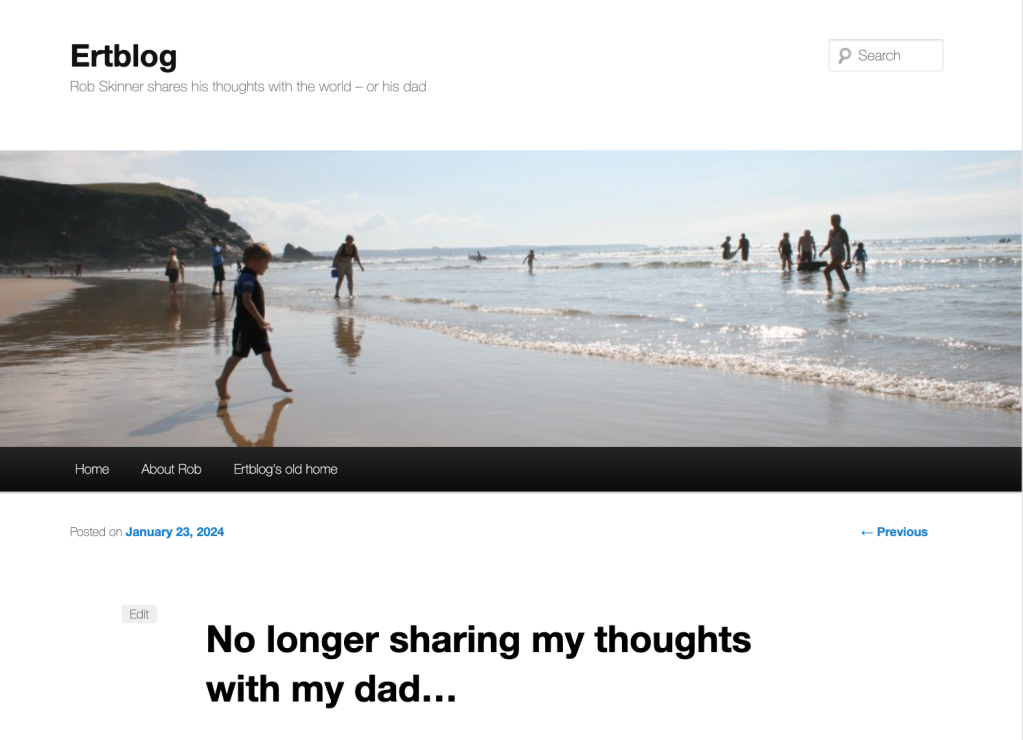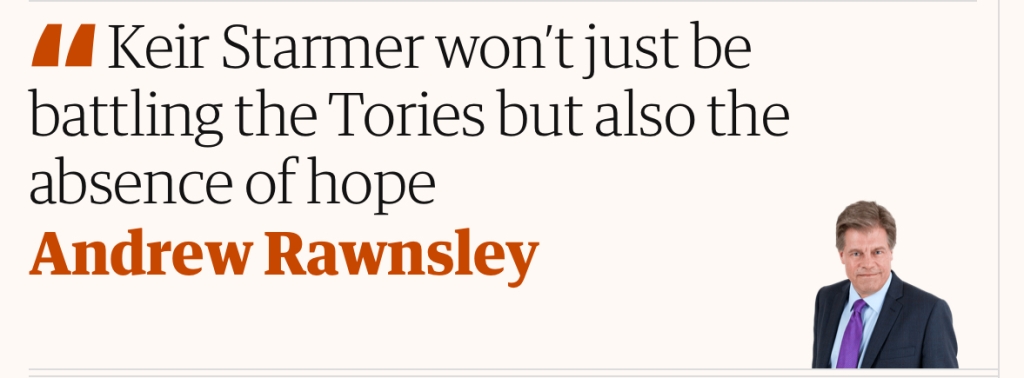
When I started blogging 18 years ago I chose a tagline: ‘Rob Skinner shares his thoughts with the world’. Then I reflected that seemed rather boastful – the world wouldn’t care what I thought. So I added a tongue in cheek qualification. The final line read, ‘Rob Skinner shares his thoughts with the world – or his dad’.
It proved a fair reflection of my limited audience. Dad and I often discussed my blogposts, and I was delighted when he started his own blog as the first Covid-19 lockdown began in 2020. (We later turned that into a Kindle book, as the BBC reported.) One of his own last blogposts, the month before he died, about cinema, was prompted by my reflections on childhood cinemas.
After Dad died last February, I occasionally thought the old tagline was poignant rather than apt. But I was reluctant to remove it. But now, 11 months after Dad passed away, and a year after that father and son blogging double act, seems the right time to do so.

Like most people who have lost a parent, I miss the chance to ask Dad a question about a hundred and one things. For example, when I blogged recently (Echoes of 1939) about his evacuation from London to stay with his aunt in Splott, Cardiff, at the outbreak of the second world war, I realised I had no idea how he got to Cardiff. Train? Coach? Alone or with his mother? Sadly, I will never know. But I have a lifetime of memories, not to mention Dad’s written memories and archives.
PS: for the record, a screenshot of this post with the old tagline, before I retire it.

Postscript
Ahzio’s lovely comment on this post – that I should keep the tagline mentioning my father – prompted me to change it to a dedication to both Dad and Mum, former journalists who inspired my love of writing.



